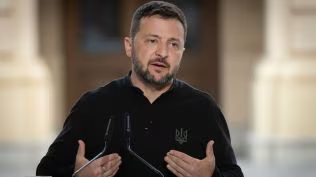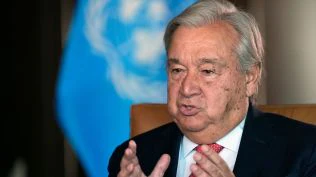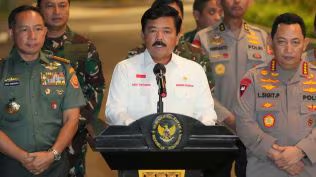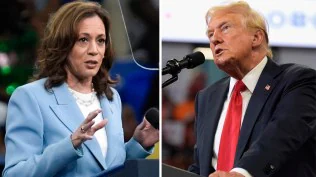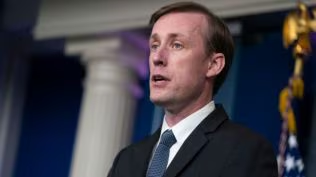France forms new center-right government after two months of political uncertainty
French President Emmanuel Macron’s chief of staff announced the formation of a new government on Saturday, aiming to resolve more than two months of political uncertainty following a snap election that resulted in a hung parliament.
Antoine Armand, a 33-year-old graduate of France’s top administration school, has been appointed finance minister, while Jean-Noel Barrot will take on the role of foreign minister in a government dominated by centrist and conservative parties, Alexis Kohler announced from the Elysee Palace. Sebastien Lecornu will remain as defence minister.

However, concerns remain about the stability of the new administration and its ability to push through reform measures, particularly with the 2025 budget as a looming challenge. Led by conservative Michel Barnier, the European Union’s former Brexit negotiator, the government faces the difficult task of addressing a significant public finance deficit, which could potentially require politically sensitive tax increases.
Macron appointed Barnier, a 73-year-old seasoned politician, as prime minister earlier this month, even though his Republicans party had a poor showing in the elections. The protracted negotiations to form a team highlight the challenges ahead. The centrist and conservative coalition will need support from other parties, particularly Marine Le Pen’s far-right National Rally (RN), to stay in power and pass legislation in a highly fragmented parliament.
Pen’s far-right, anti-immigration party saw an indirect victory with the appointment of staunch conservative Bruno Retailleau as the new interior minister, responsible for critical domestic issues such as national security, immigration, and law enforcement.
The composition and direction of France’s government hold significant weight, as the country is a major voice in EU policy, one of the world’s largest economies, and a nuclear-armed, veto-wielding member of the UN Security Council.
The 39-member cabinet is largely composed of ministers from President Macron’s centrist alliance and the conservative Republicans.
Jean-Noël Barrot has been appointed foreign minister. A centrist politician known for his expertise in digital transformation and European affairs, Barrot brings extensive experience in handling complex international issues, particularly within the EU.
The new finance minister, Antoine Armand, is an emerging figure in French politics now tasked with steering the country’s fiscal policies and managing the upcoming 2025 budget, amid pressure from Brussels to address France’s growing debt.
Sébastien Lecornu remains in his role as defence minister, where he has been instrumental in modernising France’s military capabilities, including upgrading defence systems and overseeing military aid to Ukraine. His leadership will be vital as France navigates its role within NATO and deals with rising geopolitical tensions surrounding the conflicts in Ukraine and the Middle East.
Meanwhile, Barnier faces growing scrutiny over his ability to govern, with left-wing opponents vowing resistance and the far-right closely monitoring his government. The left-wing New Popular Front won the most seats in the snap elections but was excluded from forming a minority government after refusing to join a more left-leaning alliance. Barnier’s first major test will be his general policy speech to the National Assembly on October 1.
Disclaimer: The copyright of this article belongs to the original author. Reposting this article is solely for the purpose of information dissemination and does not constitute any investment advice. If there is any infringement, please contact us immediately. We will make corrections or deletions as necessary. Thank you.
